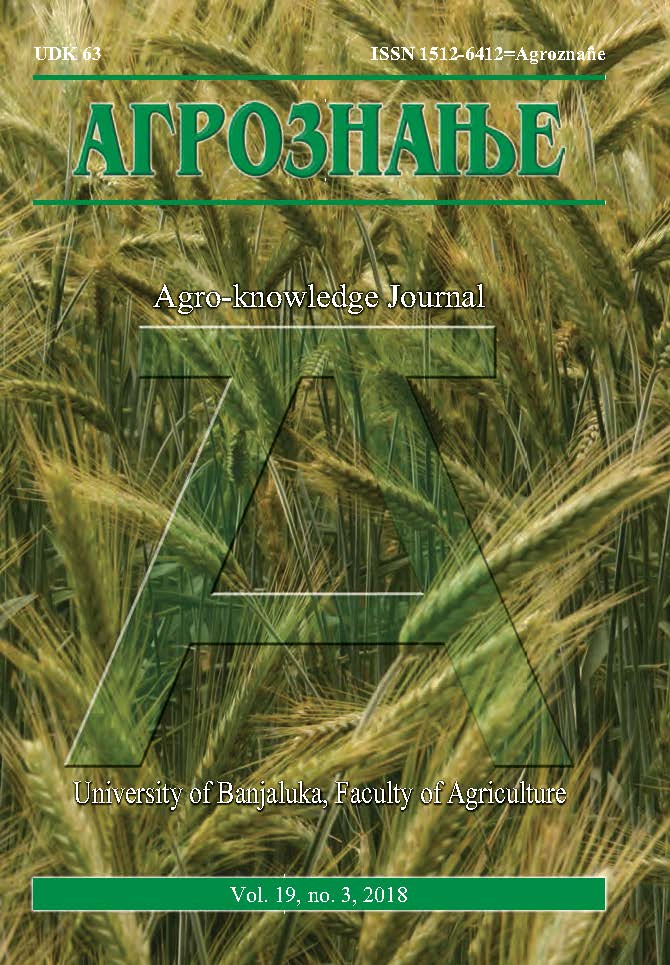The Challenges of Accession to the European Union
DOI:
https://doi.org/10.7251/AGREN1803221GAbstract
On the 21st of February 2003 Croatia submitted a request for membership in the European Union, thus starting a long process of preparation and negotiations on accession to the EU. A number of decisions that define the structure for negotiations were adopted in the period to follow. The Ministry of Agriculture, Fisheries and Rural Development was defined as responsible for Chapter 11, 12 and 13. Croatia’s key negotiating requests concerned the determination of amount of financial envelope for direct payments, the terms of application and financing of the direct payments and the determination of production quotas. The overall process of accession negotiations was completed at the meeting of the Intergovernmental Conference on Croatian accession to the European Union on 30 June 2011. The financial envelope for direct payments determined on the basis of statistical data about the agricultural production realized and resource utilized in the defined reference period was set to 373 million Euros per year. Also, since 2014, Croatia could use the EU budget for Rural Development in the amount of 333 million Euros per year (additionally including national budget funds). Finally, the EU provides the legal framework and financial ability, but whether and how the funds will be used depends on the Member State.

